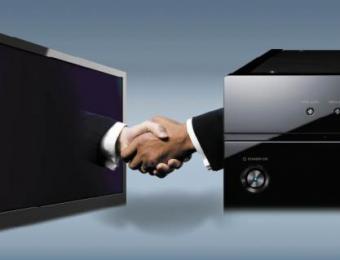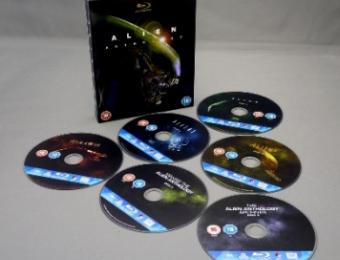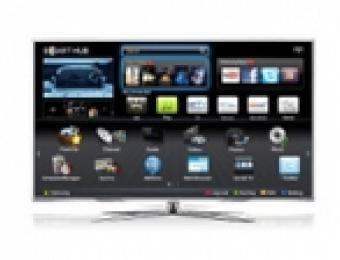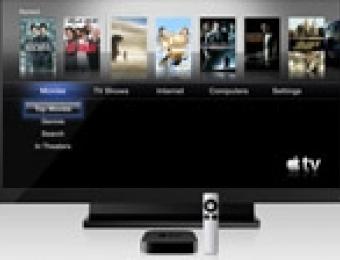Proud owners of a home theatre setup want to be able to entertain their guests without fear of tripping over components and cables. An unnecessarily large number of gadgets and gizmos and wires will cheapen the image of what is inevitably a very expensive installation.
There is a very capable and cost-effective solution though – and we have Halo, Grand Theft Auto and WiiFit to thank for that.
While games consoles have historically been seen as a bit of a toy, modern consoles offer a whole lot of functionality, for far more mature audiences. As the median age of gamers in Australia approaches and passes 30, modern game consoles are proving their capabilities as much more than gaming platforms, and making hordes of other devices redundant in the process.

Consoles as video virtuosos
You may need to think twice before buying a dedicated DVD or Blu-ray Disc player. Most modern consoles play DVDs straight out of the box, and the PlayStation 3 (or PS3) is probably the most popular Blu-ray Disc player in the world. In fact, its popularity was also regarded as the thing that helped cement Blu-ray's popularity in the first place.
Both the Xbox 360 and the PS3 have the capability to stream media from a PC connected to the same network, acting as what's known as a 'Media Centre Extender'. Both consoles are able to play a variety of media in different formats, including MPEG (both MP3s and MP4 movie format) and AVI, either wirelessly, through the home’s wired network connection, or straight from a portable hard drive or thumb drive.
Both devices also play WMV (Windows Media) files as standard.
The Nintendo Wii, on the other hand, has a nifty add-on which can be purchased to enable video to be converted to AVI format, and subsequently played through the console.
Pay TV and video streaming
In addition to being able to play digital formats, you can now also watch Foxtel straight through your Xbox 360, which does away with the need for yet another device in your home theatre cabinet. In other parts of the world, you can access video-on-demand and IPTV directly via consoles through services like Hulu and Netflix too. It's only a matter of time before such services become available in Australia.
Consoles for gaming
An obvious use for consoles, and it barely needs to be said, is for gaming. Not only do modern consoles allow you to buy and play games on disc from brick-and-mortar game stores, but they also allow you to download new content, and store it on a hard drive. The low distribution costs for this method of selling games means that they're affordable, and that a lot of games from smaller-name game developers are now available.
The speed of the average internet connection also means that you can now connect your console to the internet and play games against people from all over the world. Modern consoles allow you to see when your friends are using their consoles, and what they're using them for.
Communicating with friends and the world
Because they're designed to be constantly online, modern gaming consoles can also be used to communicate with friends, and offer instant messaging, voice and video chat. Some even have built-in access to social media tools like Facebook and Twitter.
The constant evolution of consoles
Because they're essentially purpose-built computers, consoles are capable of an awful lot. Likewise, because their functionality can so easily be updated online, modern gaming consoles are rapidly evolving in terms of what they offer and how they work.
If you bought an Xbox 360 when it was first launched, for example, it would since have acquired the ability to use Facebook, play many more media formats, play TV through Foxtel, use Twitter, chat via MSN and do all kinds of interesting things using the Kinect sensor.
Are consoles ideal for media?
While these devices are certainly worthy of being considered as the platform for your home theatre, there are some cons to weigh up with the pros.
When all is said and done, the current crop of gaming consoles are still primarily designed to be video games consoles, with the additional functionality being simply that: a value-add. While games consoles may not meet the typical industry accepted definition of a ‘professional grade’ AV player, the PS3, for example, does feature a very capable Blu-Ray player, which is exemplified by the many people who have sought the PS3 as a Blu-ray disc player rather than a gaming console. Likewise, conventional-style remote controls
If you are looking to purchase a device for a home theatre set up and have no intention of playing games, there may arguably be more appropriate products that will meet your requirements (and at a lower cost).
The idea of using a console as a media player is gaining traction, particularly among those who see the advantages of streaming DVDs rather than accumulating disks (particularly for users downloading and burning media), and for those who are looking to save space by integrating many functions into a single device.
As these gaming consoles are essentially little computers, they have more than enough horsepower to do most of what's required. An increasing interest among consumers for a home theatre setups has resulted in a rising number of consoles being used as full-blown media servers in the living room - not least of all because they're very a very affordable alternative.
|
Advantages
|
Disadvantages
|





